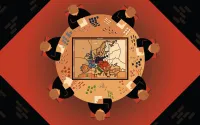11 December 2005David Adam
After American delegates walked out of the United Nations climate change conference in Montreal over the wording of a draft statement calling for international co-operation on the issue, they signed a revised version after making only 'trivial' changes.
The move came as 157 other countries agreed separately to extend the Kyoto international agreement aimed at reducing greenhouse gas emissions. The US has not joined Kyoto, so it was not involved in the talks on its future.
Environmental campaigners hailed the Kyoto breakthrough as 'a historic step forwards'. Tony Juniper, executive director of Friends of the Earth, said: 'The rest of the world is right to push ahead and leave the obstructive US behind.'
One senior British official said the US negotiators shifted their position on the joint statement because the Bush administration was stung by criticism of its stance at the meeting in the US press. 'Washington are really feeling the heat on this,' the official said.
The chief US negotiator Harlan Watson walked out of talks on Friday after complaining that draft text proposals amounted to a call for negotiations which President George W Bush opposes.
Baffling some foreign ministers, Watson told the high-level meeting: 'If it walks like a duck and quacks like a duck it's a duck.' US green campaigners quickly bought all the plastic ducks they could find in surrounding shops and handed them out to delegates and the media.
The conference was the first of the annual series to be held in North America, and US journalists flooded in, some privately admitting that they had not previously realised the international significance of the issue. The US delegation submitted its revised version of the statement text early yesterday, but made only superficial changes, said European negotiators. One revision replaced the word 'mechanisms', with 'opportunities'.
The change came after a well-received conference speech from former President Bill Clinton, in which he said that Bush's main reason for not joining Kyoto - that it would damage the US economy - was 'flat wrong'.
Clinton said if the US 'had a serious, disciplined effort to apply on a large scale existing clean energy and energy conservation technologies... we could meet and surpass the Kyoto targets easily in a way that would strengthen, not weaken, our economies'.
Global warming and melting ice, he suggested, could lead to a future climate conference in Canada being held on 'a raft somewhere'.
Clinton pointed out that there was a growing demand for action within the US, highlighting efforts by 10 states and 192 cities to cut their emissions. Bush administration officials reportedly put pressure on conference organisers to block his speech.
Weary negotiators finally agreed the revised statement as the talks dragged on into the small hours. They also agreed an action plan among Kyoto members to extend the protocol when its first phase expires in 2012.
The next Kyoto phase will demand harsher cuts in greenhouse gas pollution from developed countries, but the scope and timing of these have not yet been agreed.
Margaret Beckett, the Environment Secretary, said when she arrived in Montreal that the EU wanted cuts of up to 30 per cent by 2020.
Scientists have said global reductions of between 60 per cent and 80 per cent will probably be needed by 2050 to stabilise the climate. They believe that should keep the global average temperature to within 2C above pre-industrial levels. The world is already 0.7C towards that, with another 0.6C to come over the next few decades.
The role of developing nations in the new phase of Kyoto remains unclear, though they will probably not be asked to take on binding emission reduction targets.
One idea is voluntary targets, with no penalties for missing them and incentives for exceeding them. China and India have been a focus of the talks. Both have huge stocks of coal, whose burning would swamp any emission cuts by the developed world.
http://observer.guardian.co.uk/international/story/0,6903,1664657,00.html






